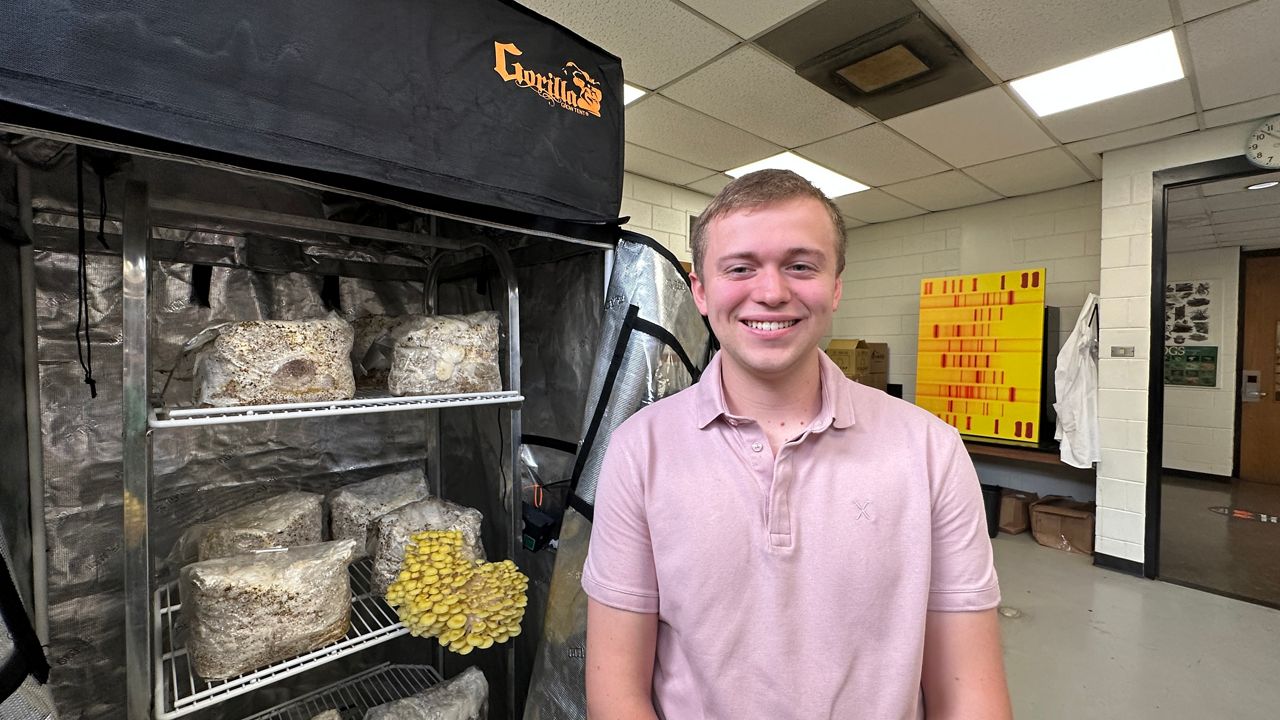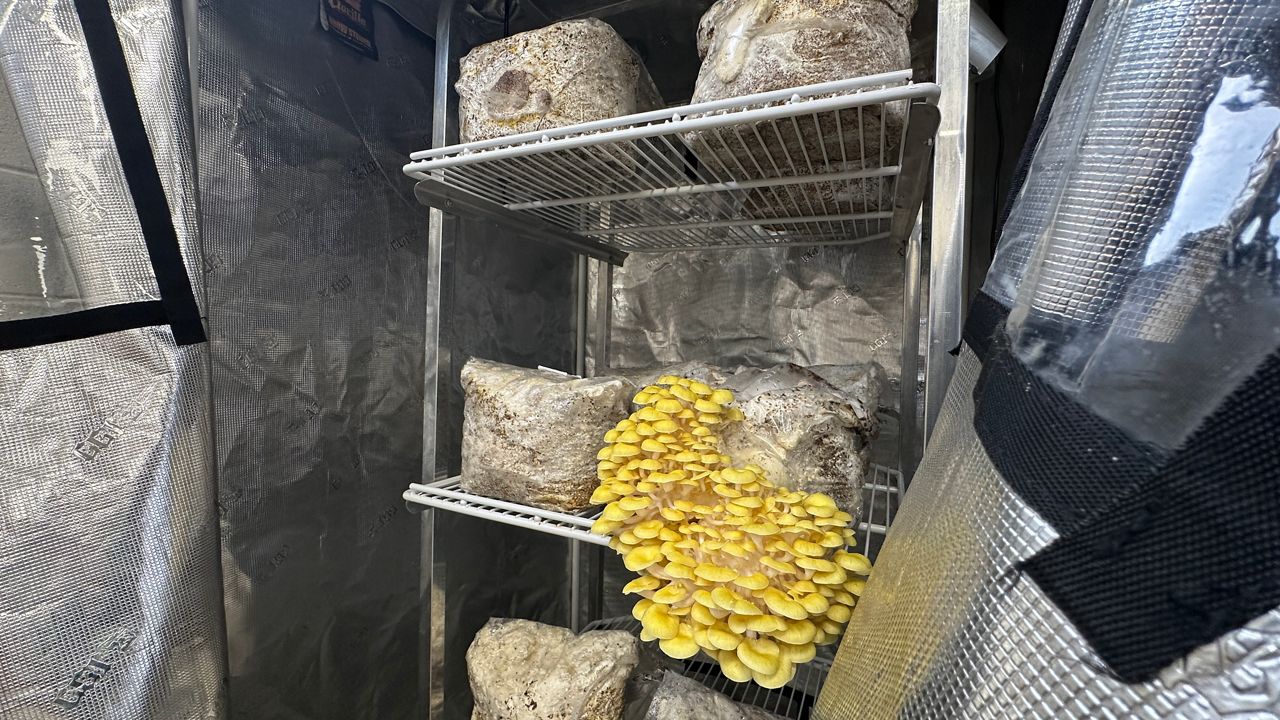LEXINGTON, Ky. — A new grant is helping students at the University of Pikeville explore new ways to source mushrooms.
The mushrooms grow in a specialized temperature-controlled space for nearly 21 days. Kolby Newsome, a junior at the university, has been part of the process alongside biology professor Byron Meade.

They plan to expand ther process and grow mushrooms in an abandoned coal mine outside the city.
The work is supported by a recent crop grant from the USFDA to the Kentucky Department of Agriculture. The school was awarded nearly $41,000 toward growing mushrooms.

“They are a forgotten kingdom. In some ways, you know when people think of fungi, they think ‘Ew,’ or mold or something like that and they are only a very small portion — you have all these edible mushrooms,” Newsome explained.
Yeast, mold and other fungi are being researched, as well as the bright yellow mushrooms currently in their sealable storage fridge. They can be consumed and used for other purposes, such as medicine.
“All the mushrooms we have grown are edible and they’re all delicious. We have the gold oysters, which are this beautiful yellow color. We grow another species from lion’s mane,” Newsome said.
They hope to grow the mushrooms in a natural habitat where they can thrive in this part of the state.
Meade says their goal is to take fungus to a new level in the region and to promote future research around mushrooms.
“$15-$80-piece mushrooms are expensive and you can get a lot of them in that little tiny tent. We can grow pounds of them a week in the tent, so imagine what we could do if we had a mine,” Meade said.
Once the mine is set for growth, students will spend this semester observing specialized equipment and keeping records as the mushrooms develop.



